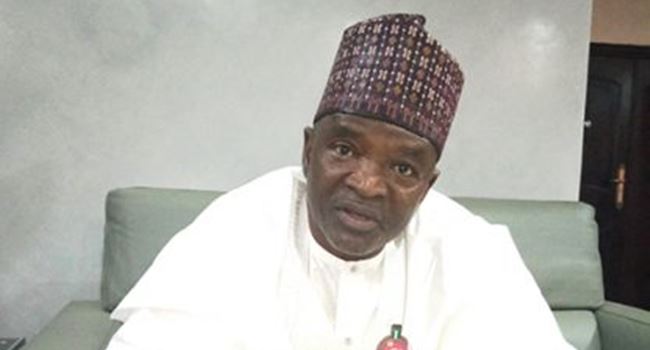News
Nigeria, with 4,919 oil spills in six years is most notorious country for spillage —Minister

The federal government has revealed that the country recorded 4,919 oil spills between 2015 to March 2021.
Dr. Mohammad Abubakar, Minister of the Environment, disclosed this at a Town Hall meeting in Abuja, organised by the Ministry of Information and Culture, on protecting oil and gas infrastructure.
The Minister who revealed that Nigeria was the most notorious country in the world for oil spillage, also stated that Nigeria lost 4.5 trillion barrels of oil to theft over the four-year period.
The minister citing figures from the National Oil Spill Detection Agency (NOSDRA), also noted that the number of oil spills costs by collation is 308.
Part of his presentation reads, “The operational maintenance is 106, while sabotage is 3,628 and yet to be determined 70, giving the total number of oil spills on the environment to 235,206 barrels of oil. This is very colossal to the environment.
“Nigeria also lost approximately 4.75 trillion on oil activities in the four years between 2015 and 2018, as estimated by the Nigeria Natural Resources Charter.
Read also: UK court approves lawsuit against Shell by Nigerian farmers over oil spills
“Several statistics have emphasised Nigeria as the most notorious country in the world for oil spills, losing roughly 400,000 barrels per day.
“The second country is Mexico that has reported only 5,000 to 10,000 barrels only per day, thus a difference of about 3, 900 per cent.
“Now the environmental effect, which is the major concern of the ministry of environment, is in the loss of revenue.
“Attack on oil facilities has become the innovation that replaced agitations in the Niger Delta region against perceived poor governance and neglect of the area.
“The impacts of vandalism of oil facilities have not only caused pollution of the environment but had consequences on the local people, the national economy and security,’’ he said.
During his presentation Abubakar also added that the activities that come with oil exploration and exploitation had similarly caused alterations to the environment and some of its effects had either been reduced or prevented.
“Adequate mitigation measures had been taken, including enforcement of relevant laws, regulations and guidelines, such as the Environmental Impact Assessment (EIA) Act.
“The EIA process ensured that measures were put in place to assist in the reduction of the negative effects and enhancement of the positive effects on the ecology, health and social wellbeing of communities in project areas.
“It is in the light of this fact that over 1,300 oil and gas projects in Nigeria have been subjected to EIA process under the supervision of the ministry,’’ Abubakar stated.
Join the conversation
Support Ripples Nigeria, hold up solutions journalism
Balanced, fearless journalism driven by data comes at huge financial costs.
As a media platform, we hold leadership accountable and will not trade the right to press freedom and free speech for a piece of cake.
If you like what we do, and are ready to uphold solutions journalism, kindly donate to the Ripples Nigeria cause.
Your support would help to ensure that citizens and institutions continue to have free access to credible and reliable information for societal development.






















